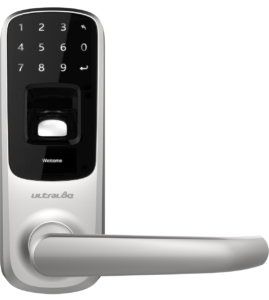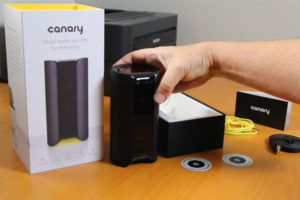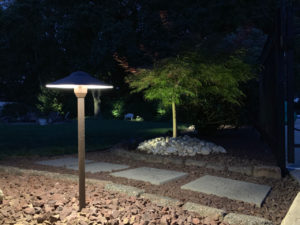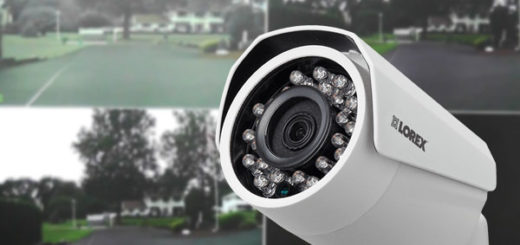How to Secure Off-Campus Housing
When your kids want to break free from all those dorm rules and supervision and move into off-campus housing, how will you prevent their things from getting stolen? Are you going to trust their roommates to keep windows and doors locked?
As I write this, my son, Tom, is starting his junior year at Rutgers University in New Brunswick, NJ. I graduated from Rutgers, as did my oldest daughter.
After two years of dorm life, where Rutgers provided excellent security through key cards, lobby receptionists, resident advisors, and campus police, Tom recently moved into an off-campus rental house with five other guys.
I'm less worried about their personal safety than I am worried about theft of their personal property. Off-campus houses in New Brunswick are old. We're lucky if the windows keep out the cold in the winter, let alone burglars!
Alarm Systems and College Kids don't mix
College kids come and go at all different hours. Some have early classes, some have sports or other activities, some have jobs, etc. With multiple bedrooms in off-campus houses, there's no way for them to know when someone's home or the house is empty. So how will they know when to arm or disarm a traditional system to secure off-campus housing?
They won't. Even if you're the last one leaving, are you going to take time to arm the system if you're running late for class? Or if your friends are heading to the party without you?
Secure Off-Campus Housing with Passive Solutions
Explicitly arming and disarming a security system requires thought and discipline – two things college kids often lack. I know I'm making a generalization. Deal with it.
Passive technology provides a solution that works automatically without thought. Nobody has to lock the door or arm the system; smart systems do that for you.
Secure the Whole House or just a Room?
It's the landlord's job to make sure each door and window can be locked. It's the renter's responsibility to lock them. With five guys in the house, I'm not willing to trust they will always get locked. Even if they do, a burglar can force entry without being noticed. So it's impractical for me to secure the whole house.
Instead, I'm focusing on Tom's domain: his room. That's where he keeps his computer equipment and personal property that would be the most valuable to replace.
Door Locks
 The first line of defense is a locked door. No-brainer, right? Wrong. Would you believe 30% of break-ins occur through unlocked doors or windows? Since Tom's room is on the second floor facing the street, I'm not worried about the windows. So I'm focused on the door.
The first line of defense is a locked door. No-brainer, right? Wrong. Would you believe 30% of break-ins occur through unlocked doors or windows? Since Tom's room is on the second floor facing the street, I'm not worried about the windows. So I'm focused on the door.
If an intruder finds Tom's door locked, I'm hoping he'll keep moving to a different room. But how could I guarantee the door will be locked?
My solution was to install a smart handset that is always locked from the outside. Sure, you can do that with many entry locks, but they require a key to open them.
This Ultraloq UL3 BT smart lock allows Tom and his roommate to quickly open the door using a fingerprint, numeric code, or a Bluetooth phone. It replaced a standard handset, which will be reinstalled when he moves out.
There are two types of accounts: admin and users. The admin maintains the settings, adds and deletes users, and can view the log. Users simply have privileges to unlock the door.
All accounts can have a numeric code to unlock the door. If they think someone is watching them at the keypad, they can enter random digits before or after their code, and the door will still open.
Fingerprint is by far the easiest way to use this lock. If they come home so drunk they can't see straight, they'll still have fingers to unlock the door!
I failed to show this in the video, but the Ultraloq comes with a physical key that inserts under the handset if the batteries or electronics fail for any reason.
Motion Detection
 If someone really wants to get in his room, they will break through his door (it's only a lightweight, hollow core, interior door) or even through a wall. A locked door is only a deterrent.
If someone really wants to get in his room, they will break through his door (it's only a lightweight, hollow core, interior door) or even through a wall. A locked door is only a deterrent.
The second line of defense should be some type of motion detection in the room. But again, I wanted a solution that was passive so they didn't need to arm or disarm it themselves.
I chose the Canary All-in-One Security Camera because it has an app on your phone that knows when you leave and automatically arms the system.
If Canary detects motion while you're away, it sends a notification to your phone with a picture of the intruder. If you don't recognize the person, you can activate a 90db alarm that will scare the bejesus out of a burglar. Plus you can call the police right from the app and save a video clip of the incident.
I use Canary in my house and it works fine with multiple occupants. It can be set for privacy when anyone is home so nobody can eavesdrop your intimate moments.
Check out the complete review of Canary that I did last year.
In conclusion
I hope this post was helpful to get you thinking about how to secure off-campus housing for your son or daughter. Please feel free to leave a reply below if you have any comments or questions!





